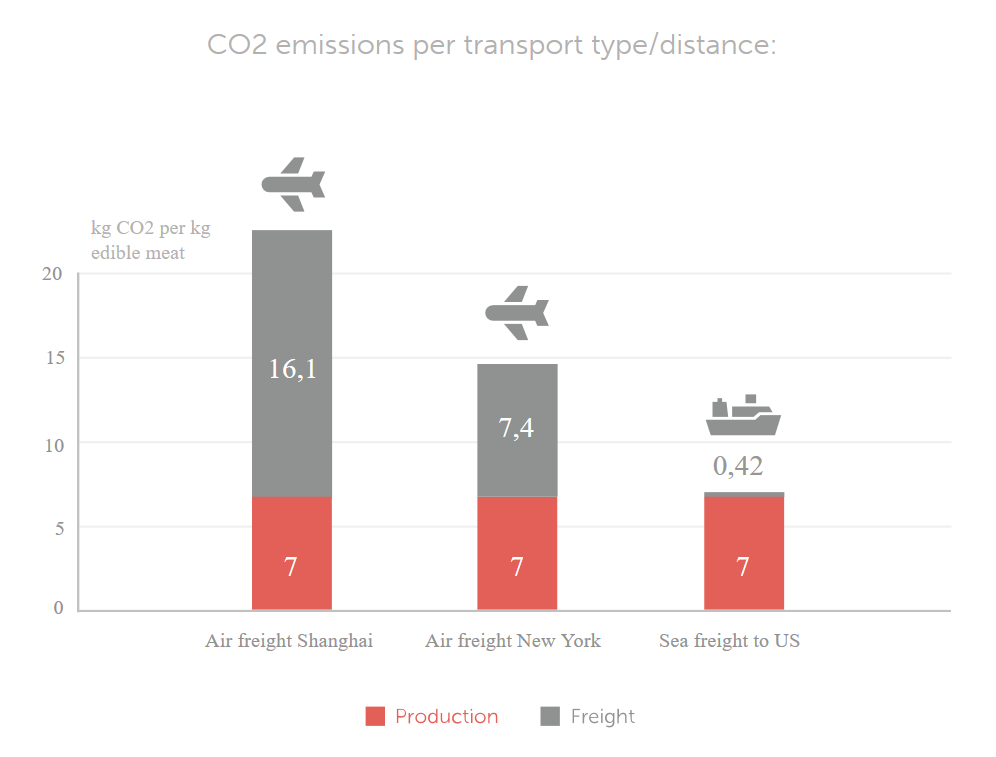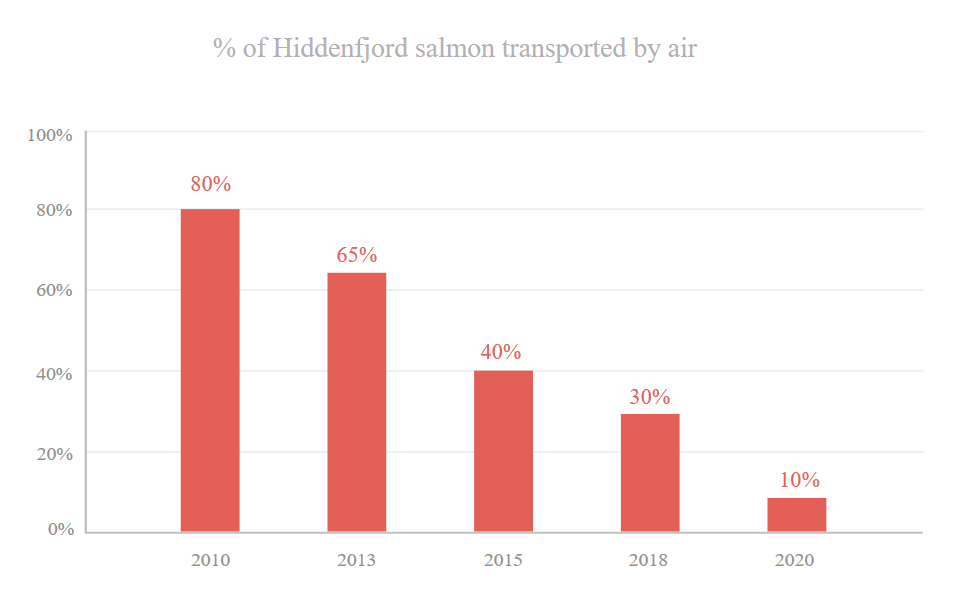Salmon farmer axes airfreight on environmental grounds
23 / 11 / 2020

A salmon farmer has completely axed the use of airfreight as it looks to sharpen up its green credentials.
Faroe Islands-based Hiddenfjord said it stopped using airfreight to ship its salmon on October 10 of this year.
“Salmon is a sustainable food choice with a much lower carbon footprint than other sources of animal protein,” it reasoned.
“However, airfreight is a major contributor to global CO2 emissions, and a large part of the fresh farmed salmon is exported to global markets by air.”
The company quoted a 2020 updated report from Norwegian research group SINTEF that showed that freight carried by air produced around “50 times (dependent of flight type and distance) more CO2 than transoceanic sea freight”.
The company said that by replacing its airfreight with seafreight it has been able to reduce carbon emissions from overseas transportation by 94%.

Owner of the salmon shipper Atli Gregersen said: “The facts are clear: we all need to immediately stop using airplanes to transport goods in order to reduce climate change.
“This was a challenging decision for us, because we knew it could mean lower prices and a much higher risk because of reduced flexibility in reaching far-away markets.
“But ethically, it is absolutely the right decision. If we claim that we want to be a truly sustainable company, we must take responsible actions.”
The company has been working to reduce its use of airfreight for a number of years, but took the decision to end its use of flights at a 2019 board meeting.
Hiddenfjord admitted that some of its overseas customers were concerned about the impact on product quality as result of lengthier voyage times.
“Although some of our customers in the overseas markets were sceptical at first, we have proved that we maintain the same quality, even when the salmon is shipped by boat to overseas destinations,” the company said.
“Our ability to maintain the quality despite the prolonged transportation time is mainly due to our unique method of stress-free harvesting. Our salmon is carefully gutted, cleaned and packed within three hours after swimming in the open seas around the Faroe Islands – the natural home of the Atlantic Salmon.”
Maintaining product quality – given the shorter transit times – is often seen as one of the key advantages of using airfreight by those moving perishable products and pharma companies.
However, the last few years have seen advances in shipping container technology, supply chain visibility and the ability to track and remedy ongoing temperature excursions. As a result there has been a push from the pharma industry to move away from airfreight where possible.
However, the pharma sector has often avoided going as far as cutting airfreight completely out of the equation as it then becomes hard to respond to demand fluctuations, launch in new markets, launch new products and quickly transport products to meet supply chain disruptions.















